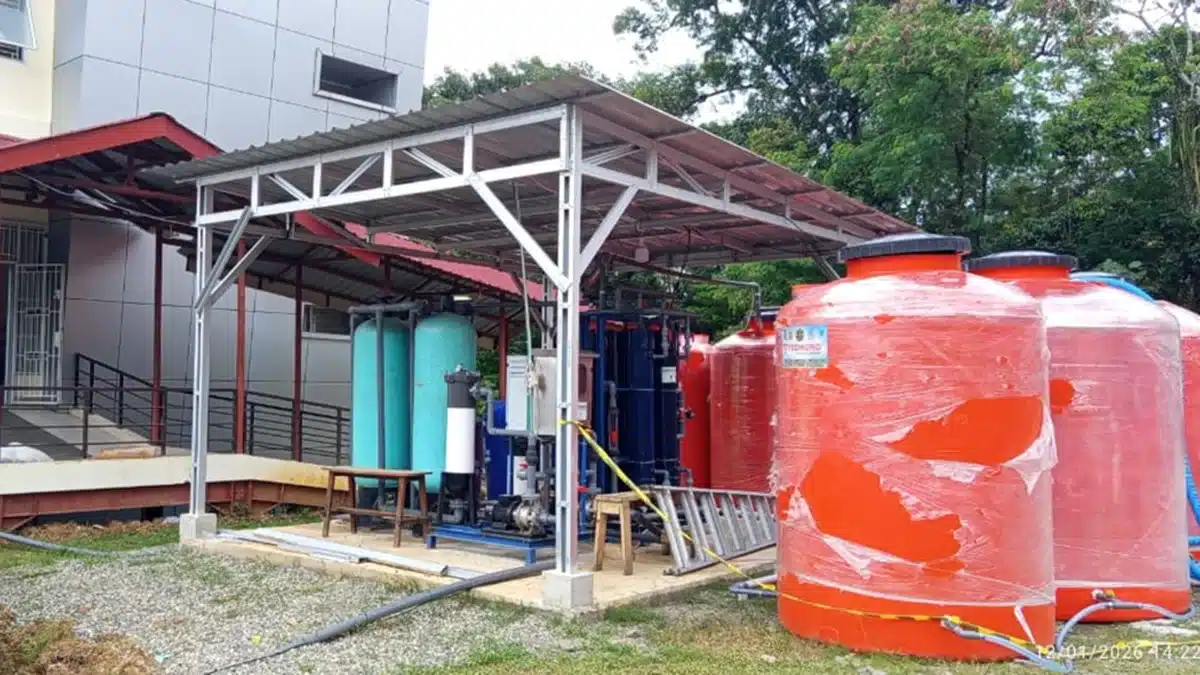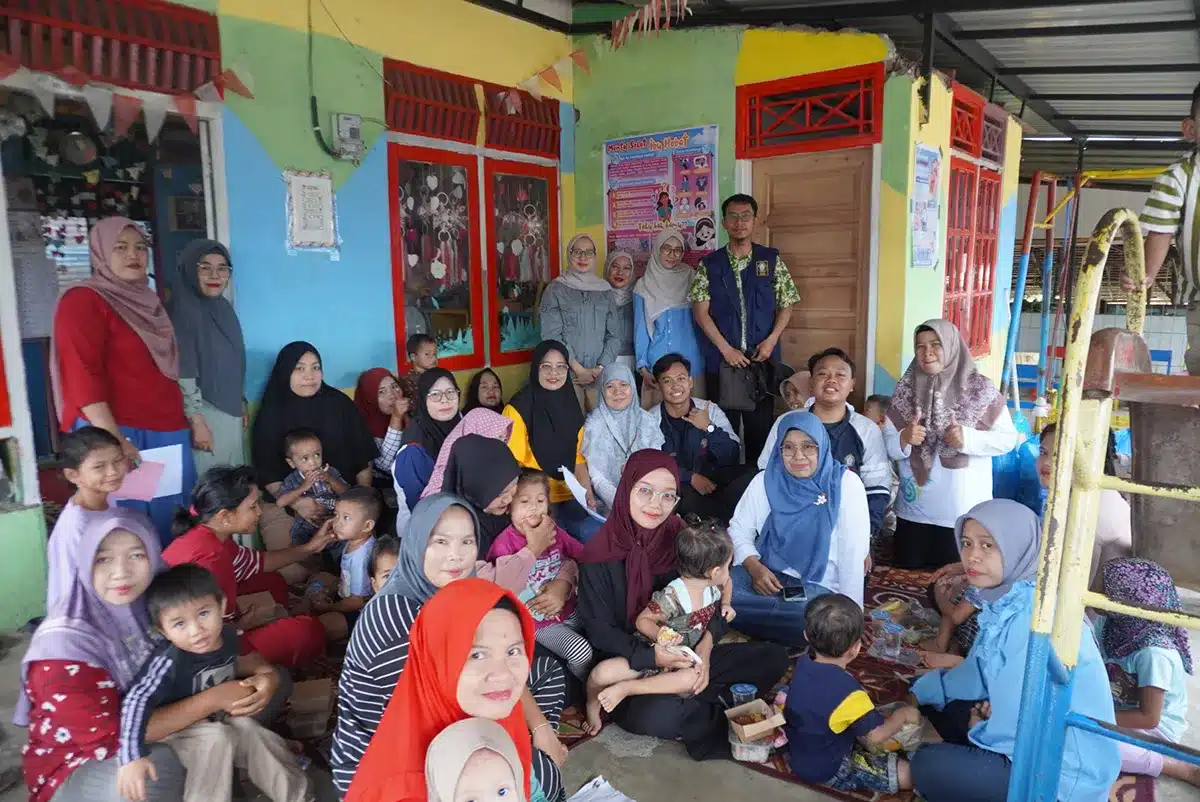UNDIP, Semarang (September 25, 2025) – The Faculty of Medicine at Universitas Diponegoro (FK UNDIP) hosted a guest lecture on September 15, 2025, featuring Joseph Lewis, BA., MA., MSci., MBBS., MRCP., DTMH., PhD., Senior Lecturer in Infectious Diseases at the Liverpool School of Tropical Medicine (LSTM), United Kingdom. The lecture was part of a research project led by Dr. Helmia Farida, M.Kes., Sp.A(K), Ph.D, titled “INTerrupting prolifERation of Carbapenem resistance in Indonesia: clinical and genomic Evaluation of Pathways of Transmission (INTERCEPT).”
UNDIP’s research team received an IDR 24.8 billion grant from the United Kingdom Research Innovation–Southeast Asia (UKRI-SEA) Collaboration on Infectious Diseases program. In this project, the team collaborates with Joseph Lewis, Ph.D., from LSTM, UK, as a research partner.
Speaking with UNDIP’s JEJAK team, Joseph Lewis, Ph.D., underscored that antimicrobial resistance (AMR) poses one of the most significant challenges to global public health.
“There are many challenges, from drug-resistant tuberculosis to sexually transmitted infections such as gonorrhea. Through INTERCEPT, our focus is on Carbapenem-resistant bacteria,” Lewis said.
Antibiotic-Resistant Bacteria Endanger Patients
Joseph Lewis, Ph.D., explained that Carbapenem resistance is particularly high in Indonesia, despite Carbapenems being last-resort antibiotics for critically ill patients, such as those with sepsis complications.
Infections caused by Carbapenem-resistant bacteria, such as Acinetobacter baumannii or Klebsiella pneumoniae, are complicated to treat and often prove fatal. He stressed that preventing such infections is vital.
“This is what I learned and researched, in my expertise and also in collaboration with the INTERCEPT team,” said Joseph Lewis, Ph.D.
Vulnerable groups include newborns, premature babies, the elderly with chronic illnesses, cancer patients undergoing chemotherapy, and hospitalized patients exposed to invasive procedures. “Multidrug-resistant bacteria are dangerous because even healthy individuals can be exposed, and finding new drugs to combat them is extremely difficult,” Lewis noted.
Multi-antimicrobial resistance is a global problem in various countries worldwide, and addressing it requires a joint effort from all of us. To reduce infection risks, Lewis emphasized the importance of environmental hygiene, access to clean water, and maintaining cleanliness in public facilities.
“Vaccination is also essential for immunity. When treating patients with infections, medical staff must carefully decide whether antibiotics are genuinely needed. The use of antibiotics in animals, agriculture, and aquaculture must be limited. Governments also play a key role in regulating antibiotic use,” he added.
Ideas about Antimicrobial Resistance Research
The INTERCEPT project originated from a growing concern among medical professionals over the rising cases of AMR. dr. Helmia Farida, M.Kes., Sp.A(K), Ph.D., stated that many antibiotics are currently ineffective against bacteria because the bacteria have developed resistance.
“Even strong antibiotics like Meropenem are no longer effective in many cases. We need to understand how Carbapenem-resistant bacteria, which cannot move by themselves, spread between patients and cause outbreaks,” said dr. Helmia.
She continued, “So, how does it spread? Is it through medical devices, physical contact between patients and family members, or other means? We’re studying the pathways the bacteria travel from one place to another, hoping our research can break the chain of transmission and reduce infections caused by resistant bacteria.”
Methods for preventing multiantimicrobial resistance have also been introduced in developed countries, but implementation is quite complex. The UNDIP’s Faculty of Medicine research team is working to adapt the method for implementation in Indonesia.
This Research Has Led to the Development of a Module Designed to Prevent Bacterial Infections
“The project aims to produce a prevention module for carbapenem-resistant infections that can be applied in type A, B, and C hospitals in Indonesia. This goal is not easy to achieve, but we have experience—for example, research by dr. Endang, one of our team members, became the basis of Indonesia’s Minister of Health Regulation No. 8/2015 on Antimicrobial Resistance Control in Hospitals,” dr. Helmia said.
Given bacteria’s ability to rapidly reproduce and mutate, including the development of resistance, the UNDIP–LSTM collaboration represents an effort by specialists to explore practical ways to reduce carbapenem-resistant infections.
The prevention module is designed to assist non-specialist medical staff in making informed decisions about antibiotic use and reducing the transmission of bacteria to other patients.
Ultimately, the team hopes the module will serve as a practical and effective policy reference for hospitals across Indonesia, helping to reduce infections caused by multidrug-resistant bacteria, especially carbapenem-resistant bacteria. (Public Communication/ UNDIP/ Titis-Syahra)








